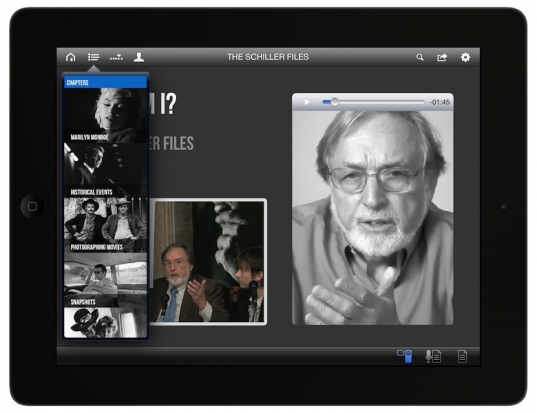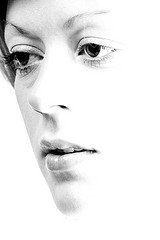Getting the wedding photos that you want relies on great communication between you and your photographer. We have ten things that you need to think about, and talk about.
Kleverbeast: bringing app creation to the masses

It's relatively simple to create a website for yourself; even if you haven't got the hosting business down, head over to Tumblr and you can post photos, share your thoughts, and inflict cat videos on the rest of the world with mind-bending simplicity. The only barrier to entry is an internet connection and in the circumstances, that's not really a barrier at all.
An app on the other hand, is a far more complicated beast to create that usually has a pricetag to match, reflective of the hours of work required to put into one. New York-based Kleverbeast doesn't think it should be exclusive, either in terms of cost or ability to create one. It has, therefore, devised a series of app templates that you can customise for your needs. It aims to cater to a variety of different creatives, but when it comes to photographers, it's suggesting showcasing your portfolio and even building in monetisation options, for example print sales.
As the Kleverbeast team puts it: 'You can make apps that look like Flipboard but with prices that you'll find at H&M.'
The basic package costs $29 a month; the pro package is $199 per month and allows for multiple editions and in-app commerce. There's also an option for something entirely customised, with an accordingly entirely customised price.
Creating a Kleverbeast app is a relatively simple drag-and-drop process that can be customised with a few clicks. You might be creating an app to a template, but it's fairly easy to pull together something that looks different from anyone else.
You can check out Kleverbeast's introductory video:
The question that I keep coming back to, though, is 'Is an app the best way for a photographer to display her or his portfolio?' If I were, for example, to be perusing the market for a wedding photographer (I'm absolutely not, by the way), I wouldn't want to have to download an app for every photographer who caught my eye. I'd just want to be able to get a flavour for their work: if I liked it, I could get in touch; if I didn't, I could close a browser tab and move on. Apps are wonderful for return visitors, and therefore ideal for news sites and completing your weekly grocery shop, but are somewhat redundant for single or infrequent visits.
I'm not sure then, that $29 per month for the basic package, with an additional $250 fee if you want help to navigate the App Store approval process, is worth the expenditure. If I'm missing something obvious, though, do pipe up because I love the idea of someone being able to simply and quickly build their own app.
Attracting better feedback
As photographers in this Internet age we read about photography, and share our work, in hopes of honing our craft. You could be pursuing a career as a wedding photographer or a sports shooter and either way you’re searching for articles, subscribing to photography blogs, and participating in photo forums in hopes that there are gems of knowledge that will take your photographic prowess to the next level.
What most photographers, especially those that didn’t do any formal art training, are missing from their arsenal of learning tools, is the art of critique.
Defining Art Criticism

Sometimes, it can be fiercely difficult to know what's missing in a photograph. The easiest way to get a bit of help is simply to ask for it - but you've got to do it right.
Simply put: Art criticism is the discussion of the evaluation of art.
And having your peers, especially those whom you respect, evaluate your photography in a constructive manner will make you a better photographer.
And yes… it can seem scary.
We often think of critiques as negative and judgmental. They don’t have to be. And if they are…well, you just shrug it off. Chalk it up to the learning process.
There is an alternative.
You could upload your images to Flickr and join groups where they require comments and post badges and prizes galore! You’ll be inundated with happy unicorns and shiny gold medals. Comments like “Wow!” and “Nice!” will flood your comments sections and you’ll be able to see through rose coloured glasses for days!
While that may be okay for the occasional ego-boost I’d argue that those kind of groups are doing you more harm than good.
I mean, let’s get real for a second…did you actually learn anything from those kinds of comments? Did you become a better photographer because you got a scripted response from someone else looking for tons of comments filled with other scripted responses?
I didn’t think so.
Get Better Photo Critiques

I know from experience that there's nothing more difficult than getting harsh critique or a ton of suggestions for improvement on a photo you're particularly proud of. But stand tall and take it like a (wo)man - it's the fastest way to get better.
Getting better photo critiques starts by going to the right places (hint: you’re already at one of them).
- You may already know that Photocritic does photo critiques and I highly recommend adding your photos to his queue.
- Flickr has a rather large assortment of groups that are dedicated to criticism and critique. Simply search Flickr for “critique” and find the one that best suits your tastes and style of photography.
- DeviantArt also has groups dedicated to criticism. What’s unique about DeviantArt is that you’ll get critiques from artists of varying mediums, not just photographers, which can add a different perspective and unique insights.
- Photography forums often have sections dedicated to critiques. You’re probably already part of a photography forum, or know of a good one, so search for critique threads.
So you found a place that does critiques. Now what?
- Upload some of your photographs then submit or post them to the groups or threads in the critiques section.
- Participate! When you join a new group or forum you’ll likely get ignored for a little while in the beginning. Don’t worry, this is natural in every social setting. You need to be pro-active and start conversations. Critique other photographs. When you start critiquing other people’s photographs you are essentially inviting them to critique your work as well.
- Keep the conversation going. After someone has left a critique of your work it’s a good idea to thank them for their time and/or insight. This simple act of “conversation” will encourage more participation from others who may be sitting on the sidelines.
Keep it constructive or you won’t really gain much.

The day you think there's nothing left to learn, you may as well eBay all your camera equipment and give up. Trust me; that day will never come. And if you think it has, you're wrong.
- Feel free to set guidelines on your work. Not everyone will pay attention, but many will. On every image I post on my flickr account I add “While your comments are greatly appreciated, your presence is enough reward. Please do not post awards or banners, leave a comment or a thought instead. I know you can!” in the description box. Think about how you could set guidelines on your work to get the best comments and critiques that you can.
- Make friends with photographers that you respect. Keep in contact with those that do constructive criticisms and maintain a conversation with them.
- Give the best critiques you can give by avoiding annoying and overused comments and critiques and other’s will more likely reciprocate.
- Be as objective as you can. You aren’t going to agree with all of the comments and criticisms you get and they’re not all going to be right. One of my best selling photographs got slaughtered in two separate critiques (one group critique and one published *yikes!* critique).
- Research. If someone calls your photograph out for not having or overdoing a certain artistic element you need to look it up (especially if you think you know what it means) before you disagree with them in an open platform. Otherwise you alienate anyone else from leaving critiques
- Be gracious and objective. This can’t be stated enough!
Following these guidelines will help you garner better critiques and comments on your photographs. You’ll learn how others look at your photographs and you’ll learn whether or not you are achieving your goals as a visual story teller. Did I miss anything? Do you actively pursue critiques?
About the Author:
I’m a huge fan of Damien Franco’s work. He’s obviously exploring; finding his feet as a photographer, but more importantly, he’s always ready to share what he knows. He works as a contemporary fine art photographer working in West Texas and writes photography tutorials when he’s not fighting tumble weeds, cactus, and oil tycoons. You could do a lot worse than following him on that there Flickr thing.
Do you enjoy a smattering of random photography links? Well, squire, I welcome thee to join me on Twitter - Follow @Photocritic
© Kamps Consulting Ltd. This article is licenced for use on Pixiq only. Please do not reproduce wholly or in part without a license. More info.






